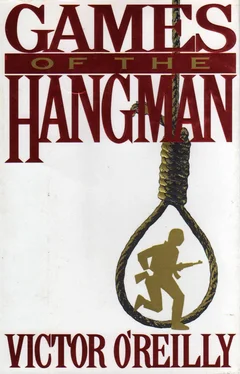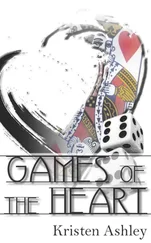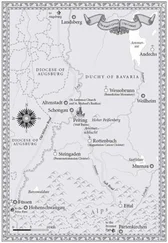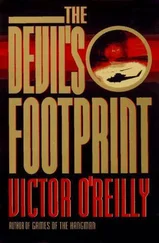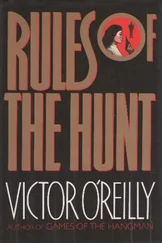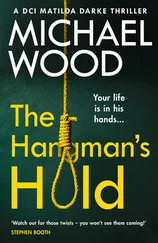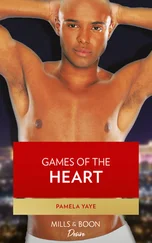Victor O'Reilly - Games of The Hangman
Здесь есть возможность читать онлайн «Victor O'Reilly - Games of The Hangman» весь текст электронной книги совершенно бесплатно (целиком полную версию без сокращений). В некоторых случаях можно слушать аудио, скачать через торрент в формате fb2 и присутствует краткое содержание. Жанр: Триллер, на английском языке. Описание произведения, (предисловие) а так же отзывы посетителей доступны на портале библиотеки ЛибКат.
- Название:Games of The Hangman
- Автор:
- Жанр:
- Год:неизвестен
- ISBN:нет данных
- Рейтинг книги:4 / 5. Голосов: 1
-
Избранное:Добавить в избранное
- Отзывы:
-
Ваша оценка:
- 80
- 1
- 2
- 3
- 4
- 5
Games of The Hangman: краткое содержание, описание и аннотация
Предлагаем к чтению аннотацию, описание, краткое содержание или предисловие (зависит от того, что написал сам автор книги «Games of The Hangman»). Если вы не нашли необходимую информацию о книге — напишите в комментариях, мы постараемся отыскать её.
Games of The Hangman — читать онлайн бесплатно полную книгу (весь текст) целиком
Ниже представлен текст книги, разбитый по страницам. Система сохранения места последней прочитанной страницы, позволяет с удобством читать онлайн бесплатно книгу «Games of The Hangman», без необходимости каждый раз заново искать на чём Вы остановились. Поставьте закладку, и сможете в любой момент перейти на страницу, на которой закончили чтение.
Интервал:
Закладка:
The atmosphere had suddenly chilled. The pleasantries were forgotten. Von Graffenlaub quickly regained control of himself, but the two men looked at each other grimly. Fitzduane knew that if his investigation wasn't to grind to a premature halt, he must convince the Swiss to cooperate. It would be unpleasant in the short term, but there was little choice. This was a hunt that had already acquired its own momentum. It would lead where it would.
There was silence in the room. There was going to be no viable alternative to something Fitzduane would have preferred not to have had to do. He opened the large envelope he had been carrying and placed the contents facedown on the table.
"I'm sorry," said Fitzduane. "I don't want to hurt you, but I don't see any other way. A twenty-year-old kid killed himself. I found him hanging there, his bowels voided and stinking, his tongue swollen and protruding, his face blue and covered with blood and spittle and mucus. I held him when they cut him down still warm, and I heard the sound he made as the last air left his lungs. To me that sound screamed one question: Why?"
Fitzduane held the photograph of the dead boy just in front of von Graffenlaub's eyes. The remaining vestiges of color drained from the lawyer's face. He stared at the photograph, mesmerized. Fitzduane put it back on the table. Von Graffenlaub's gaze followed it down and rested on it for a minute before he looked up at the Irishman. Tears streamed from his eyes. He tried to speak but could not. He pulled a folded handkerchief from his breast pocket, dislodging the flower from his buttonhole as he did so. Without saying a word, he rose somewhat unsteadily to his feet, brushed aside Fitzduane's efforts to help him, and left the room.
Fitzduane picked up the crumpled rose and held it to his nostrils. The fragrance was gentle, soothing. He did not feel proud of himself. He looked around the silent office. Through the leather padded door he could just hear the sound of an electric typewriter.
On a low cabinet behind von Graffenlaub's desk stood several framed photographs, obviously of his family. One showed a sensual brunette in her mid-twenties with full, inviting lips and unusual sloping eyes – at a guess, Erika, some years earlier. The next photograph showed von Graffenlaub in full military uniform. His hair was less gray, and the long face, with its high forehead and deep-set eyes, projected power, confidence, and vigor – a far cry from the stumbling figure who had just left the room.
The last photograph had been taken on the veranda of an old wooden chalet. Snow-covered mountains could be seen in the background. To judge by the quality, the color print was an enlargement of a thirty-five-millimeter shot. The picture was slightly grainy, but nothing marred the energy and happiness that came through. The four von Graffenlaub children stood in a row, dressed in ski clothes and laughing, with arms around one another's shoulders: Marta, the eldest, her hair pulled back under a bright yellow ski cap and with a striking resemblance to her father; Andreas, taller, darker, and more serious, despite the smile; and then the twins, wearing the same pale blue ski suits and looking strikingly alike despite Vreni's long blonde hair and Rudi's short curls. The photograph bore the inscription “Lenk 1979.” In some ineffable way it strengthened the Irishman's resolve.
Von Graffenlaub splashed cold water on his face and toweled briskly. Some slight color returned to his cheeks. He felt sick and disoriented; none of his previous training seemed to have equipped him for the situation he found himself in. The Irishman, with his sympathetic manner and core of steel, had turned into the voice of his conscience. The Irishman's conviction and resolve were daunting. It was singularly upsetting.
The lawyer refolded the towel and hung it neatly on the heated towel rail. The image in the mirror was familiar again, well groomed, purposeful. He tried to imagine the effect of Fitzduane's pursuing an investigation in Bern. Consider the distress among the family; he could just hear Erika's scathing comments. He had his position in the community to think of, and there were well-established standards of behavior. Suicide in the family was tragic and best handled as discreetly as possible. It hinted at some instability in the victim's immediate circle. It could be bad for business. It was best forgotten, or at least hushed up.
Fortunately Rudi's death had taken place in another country. The impact, so far, had been minimal. Time would further dull the memory. There was no question about it: this man Fitzduane would have to be diverted from his obsession. A discreet phone call and he would no longer be welcome in Switzerland. In Ireland von Graffenlaub was not without influence at the most senior level. This Irishman could be dealt with. It would be the best solution.
Von Graffenlaub breathed in and out deeply several times. He felt better, not quite in full health, as was understandable under the circumstances, but definitely better. He left his private bathroom, then closed and locked the door. It was a pity he had to go through the general office to get to it, but that was the trouble with these old buildings.
Frau Hunziker looked up as he was about to enter his office. "Herr Doktor," she said, "the Irishman, Herr Fitzduane, has left. He has given me his address and telephone number and asked that you call him when you are ready."
Von Graffenlaub took the note she held out: the Hospiz zur Heimat, a small hotel, though centrally located. Somehow he had expected somewhere more impressive, perhaps the Bellvue or the Schweizerhof.
He sat down at his desk. Facing him were the photographs of the children at Lenk and of Rudi hanging. The living and the dead Rudi stared up at him. Beat von Graffenlaub dropped his head into his hands and wept.
Guido, who seemed to know everybody, had made the necessary arrangements. "There will be some people there you should meet," he had said.
Vernissage: literally varnishing day, when the artist put the final coat of varnish on his paintings – they looked better that way and commanded a higher price – and invited patrons and friends to a preview.
The gallery was on Munstergasse, within three minutes of the Irishman's hotel. He was beginning to enjoy the compact size of old Bern. He had needed neither car nor taxi since his arrival. If he got fed up walking, he could try roller skates.
At the gallery Fitzduane helped himself to a glass of wine and a catalog and started to look around. After examining three pictures in a row for several minutes each, he found himself quite at a loss, or else more than whiskey had been put into the Irish coffee he had enjoyed earlier in the day. He looked at the other ten paintings and was none the wiser. All of the thirteen paintings seemed to be virtually identical rectangles of pure black.
There were nearly thirty other people in the small gallery, circulating, looking at the exhibits, and talking animatedly. None looked obviously baffled. Maybe rectangles of solid black constituted normal art in Bern.
The catalog in German was of little help. It told him he was in the Loeb Gallery, as Guido had directed, and that the artist was Kuno Gonschior, forty-six years of age, who had enough business acumen to charge about seven thousand francs a rectangle.
Fitzduane was about to turn away but to his surprise found the bizarre collection piquing his interest. Subtle differences of texture and shade began to evolve as he looked. Things were not what they seemed. Black was never quite black. What appeared at first as a mat flat surface was a minute, intricate, three-dimensional pattern. He began to smile to himself.
He sensed warmth, and an almost familiar sexual, musky smell teased his nostrils. The woman looked into his eyes with amusement and, for a moment, a startling physical intimacy. She was small and slender. He had no difficulty recognizing who she was. She wore a black off-the-shoulder cocktail dress, and her skin was deeply tanned. Her breasts were firm and prominent; the nipples pressed against the thin silk. She wore a narrow headband of gold cloth.
Читать дальшеИнтервал:
Закладка:
Похожие книги на «Games of The Hangman»
Представляем Вашему вниманию похожие книги на «Games of The Hangman» списком для выбора. Мы отобрали схожую по названию и смыслу литературу в надежде предоставить читателям больше вариантов отыскать новые, интересные, ещё непрочитанные произведения.
Обсуждение, отзывы о книге «Games of The Hangman» и просто собственные мнения читателей. Оставьте ваши комментарии, напишите, что Вы думаете о произведении, его смысле или главных героях. Укажите что конкретно понравилось, а что нет, и почему Вы так считаете.
